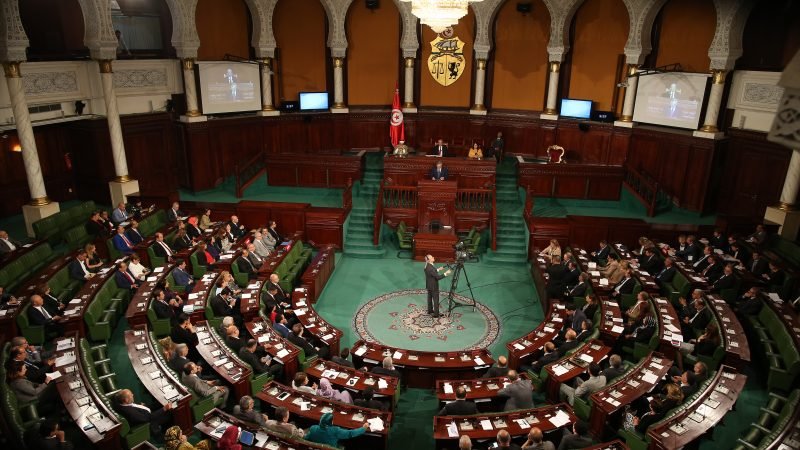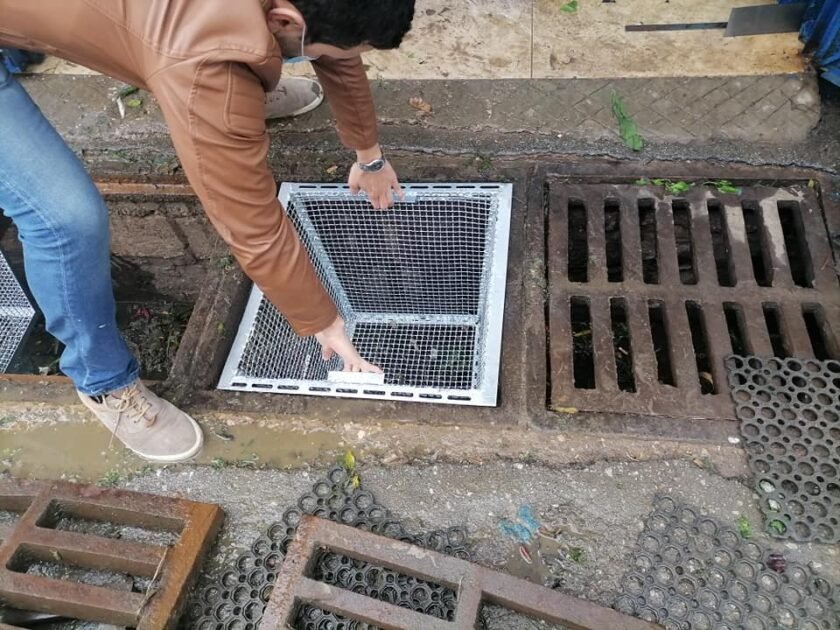Tunisia is at a turning point, which makes now the perfect time to support its vibrant but fragile democracy and turn it into one of Europe’s strongest allies in the region, write Frédérique Ries and Fulvio Martusciello.
MEP Frédérique Ries is a member of ALDE, Belgium and MEP Fulvio Martusciello is a member of EPP, Italy.
The Arab Spring – that spontaneous outburst of democratic fervour across the Arab and Muslim world – captivated us and filled us with hope in 2011. For the first time in years, we saw spontaneous protests for democracy, human rights and free speech across the region, leading to the toppling of dictators and authoritarian regimes in many countries.
Yet that revolution quickly led to disappointment and often chaos wherever it had a chance to prosper. Everywhere, that is, except one country: Tunisia, where it all began.
Tunisia may be currently experiencing unrest due to discontent among some parts of the population over slow growth. Yet we must first look at the positives: the country has confounded sceptics by building a stable, vibrant democracy in North Africa – one that could arguably teach some European democracies a thing or two – and ensuring stability despite the much-feared opening of the public space to often conflicting viewpoints.
Tunisia is proof that democracy can thrive in an Arab, Muslim country, without endangering secularism, women’s rights or minority rights. Indeed, in the 2018 Freedom House report, Tunisia is the only North African country deemed “free.”
Since its democratic transition in 2011, Tunisia has held two successful parliamentary elections and one equally democratic and peaceful presidential election. Its national legislature is a multi-party assembly, in which no single political grouping has the majority, and its press is just as pluralistic and free.
That is no small feat, considering the number of years the country had to endure dictatorship and limited human rights – and should be an example for the entire region, where too many countries still endure authoritarian rulers, crackdowns on free speech and muzzled media.
Tunisia’s secular model is precious at a time when other formerly secular countries in the Muslim world – such as Turkey – are backsliding into Islamism. The feminist cause is strong in Tunisia, and the country boasts the highest percentage of female Members of Parliament in the Arab world.
A new 2017 law enshrines women’s rights by criminalising marital rape and sexual harassment, making gender-based wage discrimination illegal and raising the age of consent for women to 16, to reflect similar laws in Europe.
Alongside Morocco, Tunisia is also a rare bastion of stability in North Africa – and has, therefore, become a key partner in the fight against terror, in strategic defence cooperation with the EU, NATO and the USA, and in controlling migratory flows towards Europe.
At a time when Europe needs all the allies it can get to stem the flows of people trying to cross the Mediterranean, to fight radicalisation at home and abroad, and to cooperate in identifying, tracking and catching terrorists, Tunisia is a natural ally for the West.
Additionally, the country is also reforming its economy after years of kleptocratic governance under former president Zine El Abidine Ben Ali.
Tunisia’s current government pledged last year to increase economic growth to 5 percent in 2020 compared with an expected rate of 2.5% in 2017, alongside a promise to halve the budget deficit to 3% of GDP by that year from 6% in 2017. The government also set targets for lowering the public sector wage bill and shrinking the debt-to-GDP ratio.
These reforms will not happen overnight – hence impatience shown in recent protests. Many point to current tensions over limited growth, current inflation, and the slow pace of reform as a sign of instability. Of course, young people are impatient to reap the benefits of a revolution that they largely led.
While unemployment nationally is at 15% of the active population, 30% of young higher education graduates are jobless: these figures must be reversed.
Current tensions have also been stoked in part by Islamist movements seeking to endanger Tunisia’s secular, modern democracy. That is why we must support the continued work of the Tunisian government under Beji Caid Essebsi and Youssef Chahed – secular, moderate, democratic leaders showing the world that Tunisia can be a model for modern democracy in the Arab and Muslim world.
Tunisia can, should and must be one of our strongest allies in the region, supported by work towards closer economic ties with Europe, more military and continued intelligence cooperation.
We must support Tunisia – because doing so means supporting the idea that a North African, Arab, Muslim country can be a champion for democracy, women’s rights and secularism in a region that so sorely needs it.




